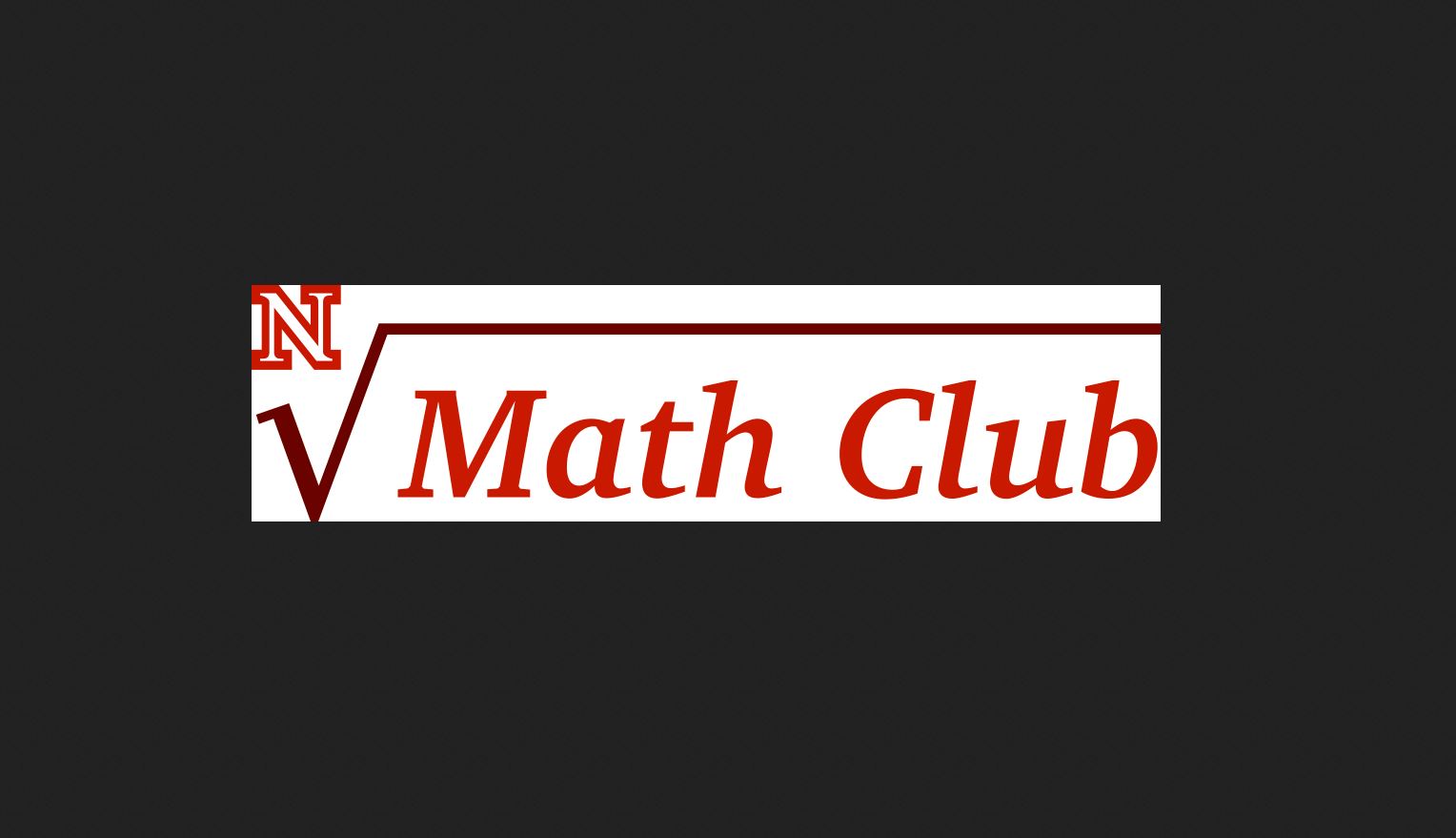
FALL 2020 COURSE PREVIEW
Since the Math Club's Fall 2020 Course Preview event was canceled due to COVID-19 and the switch to remote, online instruction, the instructors for the Fall 2020 semester's 400-level Math courses have provided a brief introduction to their courses for the fall semester. Here are the 400-level Advanced Math courses being offered for the Fall 2020 semester:
MATH 417: Group Theory
Instructor: Dr. Abigail Raz
Prerequisite: A C, Pass, or better grade in MATH 310: Introduction to Modern Algebra
Preview from Dr. Raz:
Math 417, group theory, is a chance to explore one of the foundations of modern mathematics. As the course title suggests, we will be focusing on groups, an algebraic object defined by a set and a single binary operation. We will start by learning about groups that arise from familiar settings before moving into a survey of various facets of group theory and their connections to other subfields of mathematics.
In this class we will not only focus on gaining a knowledge of group theory, but also an increased comfort with proof writing and communicating mathematics. The class itself will be split into both lecture and group work sessions to allow students time for guided exploration of the material.
MATH 424/824: Introduction to Partial Differential Equations
Instructor: Dr. Adam Larios
Prerequisite: A C, Pass, or better grade in both MATH 208/208H: Calculus III & MATH 221/221H: Differential Equations
Preview from Dr. Larios:
Partial differential equations lie at the heart of an extremely large number of natural phenomena. Our understanding of these equations and their solutions has yielded a massive amount of progress for the human race. Furthermore, the unsolved problems are enormously varied, rich, and challenging. Research in differential equations is found at the cutting edge of nearly every discipline in science and mathematics, and progress often requires cutting-edge mathematical tools. We will explore many of these ideas, and look into fundamental phenomena involving diffusion, vibration, convection, and many other properties.
MATH 425: Mathematical Analysis
Instructor: Dr. Mikil Foss
Prerequisite: A C, Pass, or better grade in MATH 325: Elementary Analysis
Preview from Dr. Foss:
Real number system, topology of Euclidean space and metric spaces, compactness, sequences, series, convergence and uniform convergence, and continuity and uniform continuity. The MATH 425 course is an expansion of material that is introduced in the MATH 325 course, but the MATH 425 course does not cover as much material as the MATH 825 course. When the MATH 425 course was going to be offered in Fall 2018, it was going to expand MATH 325 into Partial Differential Equations.
MATH 435: Math in the City
Instructor: Dr. Huijing Du
Prerequisite: A C, Pass, or better grade in 2 out of the following 3: MATH 221/221H: Differential Equations, MATH 314/314H: Linear Algebra, or STAT 380/380H/RAIK 270H: Statistics and Applications
Preview from Dr. Du:
Mathematical models have been widely used in the past decade and in the current COVID-19 outbreak. The course aims to aid pandemic planning by allowing detailed predictions of the spread of a pandemic utilizing various epidemiological models, including considering deterministic or stochastic, continuous or discrete, non-spatial or spatial, and the homogeneous or heterogeneous structure of the population. This is a project-based course. You will work with your team to make your own decisions, perform your own research, and present your projects to peers and visitors.
MATH 452: Graph Theory
Instructor: Dr. Xavier Perez
Prerequisite: A C, Pass, or better grade in 1 out of the following 3: MATH 309: Introduction to Mathematical Proofs, MATH 310: Introduction to Modern Algebra, or MATH 325: Elementary Analysis
Preview from Dr. Perez:
This course is an introduction to the properties and applications of graphs. We will study important graph-theoretic concepts, including paths, circuits, cycles, trees, matchings, connectivity, network flows, colorings, and planarity. The course is designed to develop students' ability to understand and write proofs. We will use the following textbook: Introduction to Graph Theory, 2nd edition, by Douglas B. West.
Here is an example of a classical question in graph theory due to Ramsey: How large should n be (given k) so that the following statement is true? At every party with n people, you can always find a group of k individuals such that either every two of them are friends on Facebook or no two of them are. The graph in this figure shows that, for k=4, n must be greater than 17. It can be proved that n=18 works.
MATH 489/889: Stochastic Processes
Instructor: Dr. Steven Cohn
Prerequisite: A C, Pass, or better grade in both MATH 314/314H: Linear Algebra & STAT 380/380H/RAIK 270H: Statistics and Applications
Preview from Dr. Cohn:
A stochastic process is a collection of random variables, most commonly a sequence {Xn} or a continuous-time process {Xt}. Discrete or continuous, we usually think of Xt as the state of system at time t. Various rules relate the past, present, and future of the process, e.g.
(1) E[Xt+h | Xt] = Xt
A process satisfying (1) is called a martingale. Stochastic processes are important mathematical modeling tools in many branches of science, engineering, theory of operations and economics, as well as beautiful mathematical objects in their own right. We'll try to cover material from the following
sections: Markov Chains; Markov Chains for the Long Term; The Poisson Process; Brownian Motion; and Stochastic Calculus. In the unlikely event that we have time left over, we will choose additional material from these sections: Branching Processes and Markov Chain Monte Carlo.